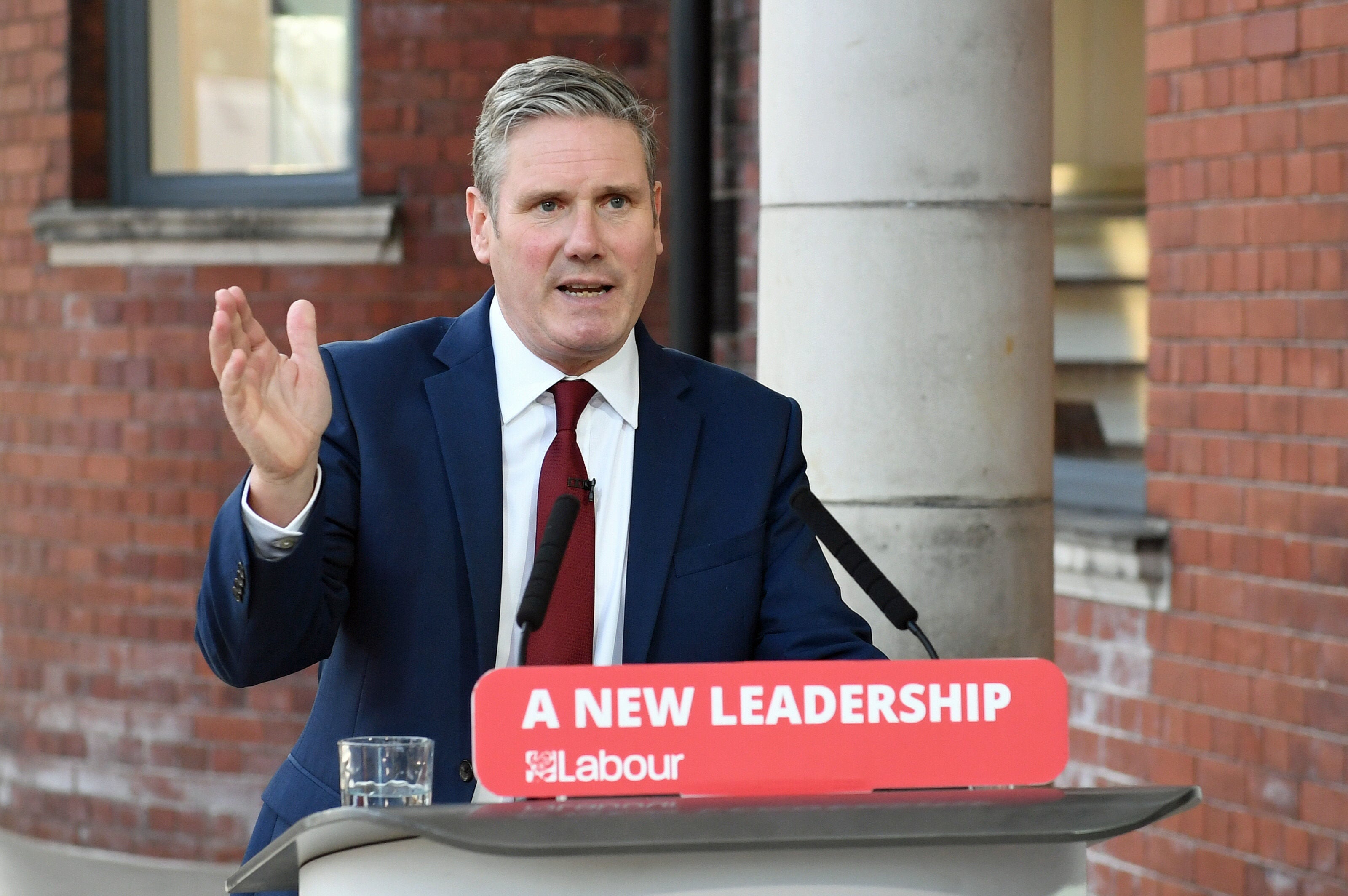Brexit news : Budget cancelled as Boris Johnson warned UK faces ‘winter of discontent’
Follow for the latest developments
Your support helps us to tell the story
From reproductive rights to climate change to Big Tech, The Independent is on the ground when the story is developing. Whether it's investigating the financials of Elon Musk's pro-Trump PAC or producing our latest documentary, 'The A Word', which shines a light on the American women fighting for reproductive rights, we know how important it is to parse out the facts from the messaging.
At such a critical moment in US history, we need reporters on the ground. Your donation allows us to keep sending journalists to speak to both sides of the story.
The Independent is trusted by Americans across the entire political spectrum. And unlike many other quality news outlets, we choose not to lock Americans out of our reporting and analysis with paywalls. We believe quality journalism should be available to everyone, paid for by those who can afford it.
Your support makes all the difference.Rishi Sunak has cancelled his upcoming budget after a surge in new coronavirus cases forced the government to bring in fresh restrictions likely lasting six months, placing the chancellor under intense pressure to provide financial help to affected businesses and individuals.
As Mr Sunak prepares to lay out new support on Thursday, Boris Johnson has been accused of leading the UK into “another winter of discontent” amid fears of mass unemployment and a failing coronavirus testing system.
It came as Michael Gove revealed that police will patrol the Kent border to turn away lorries without an “access permit” in a bid to ease Brexit border chaos. The Cabinet minister confirmed a leaked letter that said the government predicted a no-deal worst case scenario of 7,000-truck-long queues with up to two days of delays.
This live blog is no longer being updated. Read our coverage as it happened below:
Good morning, and welcome to The Independent’s live blog following the latest developments in UK politics.
7,000-truck-long queues predicted in Brexit worst case scenario
Brexit may result in 7,000-truck-long queues in Kent after the transition period if hauliers fail to prepare for changes to customs rule, a letter from Cabinet minister Michael Gove has warned.
The Chancellor of the Duchy of Lancaster, who is responsible for no-deal planning, has written to logistics associations with the government’s “reasonable worst-case scenario” planning, which warns of the possibility of two-day delays for cargo travelling to France in January.
The letter, seen by PA news agency, states that in the Cabinet Office’s reasonable worst-case scenario, between 30 to 50 per cent of trucks crossing the Channel will not be ready for the new regulations coming into force on 1 January 2021.
It also says that a “lack of capacity to hold unready trucks at French ports” could reduce the flow of traffic across the strait to 60 to 80 per cent of normal levels.
“This could lead to maximum queues of 7,000 port bound trucks in Kent and associated maximum delays of up to two days,” said the documents.
Government defeated in Lords over post-Brexit food standards
The government has been heavily defeated in the Lords over a cross-party move to guarantee high food standards post-Brexit, report my colleagues Trevor Mason and Nick Lester.
Peers backed by a majority of 95 a change to the Agriculture Bill aimed at blocking the import of foodstuffs produced abroad at lower animal welfare standards.
Get the full story here:

Government defeated in Lords over post-Brexit food standards
Amendment means products imported under future trade deals must meet domestic standards
Army to ‘backfill’ police forces during increased coronavirus restrictions, says Dominic Raab
The foreign secretary has clarified that the Army would be used to “backfill” police forces in order to free up officers as coronavirus restrictions are tightened.
Speaking to BBC Breakfast, Mr Raab said: “As the police increase some of the enforcement… to make sure we’ve got consistent adherence and compliance with the guidance, the army, the military, will be there to backfill - to free up any capacity that is needed.
“I don’t think that is quite the suggestion from Jon Ashworth or others that they are going to be out patrolling the streets.”
His explanation comes after Boris Johnson claimed in a televised address on Tuesday that the government would “use the army if necessary” to enforce the restrictions.
Shadow health secretary Jonathan Ashworth told LBC Radio he would support a decision to deploy the army to help with the UK’s pandemic response if it helped the contact tracing system.
Rishi Sunak considering German-style wage subsidies to replace furlough scheme - report

The chancellor is reportedly considering an emergency support package to help businesses through the second wave of coronavirus, which may include German-style wage subsidies to replace the furlough scheme.
As the furlough scheme is due to end next month, business and industry groups have been piling pressure on the government to introduce additional measures to ensure businesses can stay afloat as lockdown restrictions tighten.
According to The Guardian, the Treasury has been consulting on replacement options for the furlough scheme.
Sources from business and industry told the newspaper the Treasury decided to delay an announcement due on Wednesday, in which Rishi Sunak was expected to confirm the extension of four government-backed loan guarantee schemes until November.
But it is believed that Mr Sunak is using the delay to come up with a wider support package following the prime minister’s announcement of tougher restrictions to curb the spread of coronavirus.
What are the key points in Boris Johnson’s new restrictions for England?
The prime minister announced a raft of new coronavirus restrictions for England that could last for six months, in a bid to curb the growing spread of Covid-19.
Samuel Osborne breaks down the key changes in Mr Johnson’s announcement on Tuesday evening:

What are the new coronavirus restrictions in England?
Measures could last for six months, prime minister warns
Boris Johnson wins over Tory rebels on Brexit agreement-breaking powers
Lawmakers have backed changes to the Internal Market Bill, bringing the prime minister a step closer to gaining parliamentary approval for new powers to break the Brexit Withdrawal Agreement.

The bill aims to ensure Britain’s four nations can trade freely with each other post-Brexit, but critics have said this requires breaking the EU exit treaty to protect Northern Ireland unless discussions with Brussels make a breakthrough.
Pressure from Tory backbenchers who rebelled against the bill forced Mr Johnson to agree to amend the bill in order to give MPs a vote before the government can use powers that would breach the Withdrawal Agreement, which was struck with the EU last year.
The compromise amendment was supported in the Commons without the need for a formal vote.
Despite disapproval from some in the Conservative Party, including former prime minister Theresa May, the bill now passes to the final stages of approval in parliament’s lower chamber, which will take place next week.
Following that, the bill faces two months of scrutiny in the upper chamber, where many have expressed concerns about the bill and could try to strip the contentious powers out of it.
But any changes would have to be approved by both chambers and may lead to an impasse.
UK could face second national lockdown if new restrictions are flouted, says Dominic Raab
The Foreign Secretary has warned that people in the UK could have a second national lockdown imposed on them if the new coronavirus restrictions announced yesterday are flouted.
Dominic Raab said restrictions similar to those imposed in March may not be necessary at Christmas if “everyone plays by the rules”.
He told Sky News: “Let’s hope we can get through the winter months if we take these measures and if everyone plays by the rules, and we go into Christmas not needing to go into that national lockdown with all the impact on society and families but also the damage it would do to businesses.”
If further measures are required, they will be “more intrusive”, he added, and Britain could “end up in a national lockdown”.
“That is what we want to avoid.”
How Keir Starmer broke decisively with Corbyn’s legacy
Keir Starmer has moved on from his predecessor with surprising stealth and speed, but without even mentioning Jeremy Corbyn’s name, writes our Chief Political Commentator, John Rentoul.
Read his analysis below:

Opinion: Keir Starmer broke decisively with Jeremy Corbyn’s legacy – by not mentioning him
The Labour leader has moved on from his predecessor with surprising stealth and speed, writes John Rentoul
Boris Johnson repeating ‘mistake’ by not going far enough with restrictions, says government advisor
One of Downing Street’s top scientific advisors has criticised Boris Johnson’s government and said it is not learning from its mistakes by failing to take tough enough action to stop the spread of coronavirus.
Professor John Edmunds, a member of the government’s Scientific Advisory Group for Emergencies (Sage), said action was not taken quickly enough back in March and Mr Johnson is about to repeat that “mistake”.
My colleague Adam Forrest reports:

Boris Johnson repeating ‘mistake’ by not going far enough with coronavirus curbs, says government advisor
Sage member says further measures needed urgently

Join our commenting forum
Join thought-provoking conversations, follow other Independent readers and see their replies
Comments